What started out as an event to help revitalize a downtown Manhattan neighborhood -- one financially and geographically decimated by 9/11 -- the Tribeca Film Festival has become very much its own woman. Sprawling well into the Village and Chelsea, the eight-years-young festival, which ran April 22 to May 3, continued to evolve in terms of its programming (admittedly slimmed down due to the economy) and a handful of initiatives and developments to benefit and assist filmmakers (the year-round Tribeca All Access Program and Gucci Tribeca Documentary Fund) -- yet reached into the past while doing so.
Case in point: Screened as a work-in-progress, and developed through the Tribeca All Access Program, director Crayton Robey's documentary Making the Boys explored the stories behind writer Mart Crowley's seminal gay classic play and film The Boys in the Band and the unique hinge in the modern LGBT rights movement it represented.
On one side of the hinge was pre-Stonewall America, where gay-identified characters and individuals were fleetingly (if at all) represented in popular media. Along came Boys , with its unabashedly gay (and one possibly closeted) set of characters, none of whom perish by curtain call. It was a smash hit, a watershed, but by the time the runaway success was adapted into a film, the post-Stonewall door to gay rights had been mounted on the other side of the hinge and Boys was suddenly lambasted as destructive and negative -- an enemy. Then AIDS struck, and every gay member of the cast succumbed to the disease.
Utilizing an impressive treasure trove of rare archival material (including Super-8 footage of a gay icon-studded party -- Judy! Rock Hudson! Sal Mineo! -- at Roddy McDowall's beach house, and scenes from a beyond-campy Bette Davis TV show pilot), interviews with Crowley and two of the three surviving cast members, and a Trivial Pursuit game's worth of details (like the fact that the Japanese stage version of Boys featured a Korean character in place of the black Bernard), Making the Boys is as much a sprawling chronicle of a turning point in gay rights and pop culture as it is a making-of and testament to Boys ' enduring legacy.
Following the April 27th screening, Making the Boys was followed by a panel discussion -- part of the "Tribeca Talks" series -- with Robey, Crowley, Dominick Dunne, Michael Musto, Dori Berinstein, Carson Kressley, and original Boys cast member Laurence Luckinbill. Much additional trivia was shared. Crowley revealed that Carol Channing had wanted to mount an all-female version; the play represented a catharsis for torment Crowley was enduring at the time; actor Keith Prentice, who played Larry, was originally cast as Michael in the workshop version of the play and was quite good in the role; and Robert Downey once starred in a high school production of the play.
Musto joked that the Boys film was director William Friedkin's "dry run for The Exorcist ." Kressley mused that an all-women's version could take place at a womyn's music festival. And Luckinbill shared numerous anecdotes about the play's impact on its audience, as well as an unused scene shot for the film in which Hank and Larry cuddle in a bedroom.
Robey encouraged feedback and suggestions from the audience since the film is still a work-in-progress, and asked whether anyone knows of the whereabouts of Reuben Greene, the actor who played Bernard -- and third surviving member of the original cast -- as they would love to include him in the film. To complement Making the Boys , Tribeca presented a free screening of TheBoys in the Band.
Another queer icon from the past made a return to Manhattan in An Englishman in New York . A sequel to The Naked Civil Servant , Englishman sees actor John Hurt reprise his role as the 70-something U.K. expat dandy Quentin Crisp, whose rise to New York celebrity and popularity were bungled by a few ill-advised quips too many (like dismissively calling AIDS "a fad, nothing more"). It's a funny yet poignant work, boasting memorable turns by Jonathan Tucker as a tortured, lonely gay artist, Denis O'Hare as Crisp's friend and editor, Cynthia Nixon as New York City performance artist Penny Arcade, and Swoosie Kurtz as Crisp's agent, Connie Clausen.
The stars and director Richard Laxton were present at an amfAR champagne reception for the film. Tucker, who once graced the cover of The Advocate with Tilda Swinton in a dramatic pieta-style pose ("It was Tilda's idea to do the pieta shot," he recalled. "I thought it went well with the article."), gushed kudos about working with Hurt. "He's one of the most generous actors," he said. In the film, their characters learn lessons in friendship and humanity from each other, and life imitated art in this case as Tucker learned a few things from Hurt while working together, especially when it comes to being judgmental. "Both Quentin and John don't judge people."
At the party, Laxton and Hurt reminisced about their favorite Crisp-isms, including a line he once said at an Alcoholics Anonymous meeting: "It doesn't matter how much you drink -- never be anonymous!" In addition to musing about the possibility of a musical spin-off ( Quentin: The Second Coming ) and sharing memories of the shoot, Hurt recounted his first gay role as "a young man who gets picked up in the underground" in the 1964 play Inadmissible Evidence .
While besieged by fans eager to take photos with her, Kurtz shared that, were Crisp still with us, he "would revel in this attention yet be shy." Kurtz filmed her Englishman scenes in between brief breaks from Pushing Daisies . As for what else she's been up to lately, she responded, "I have become the guest star 'ho. I did Nurse Jackie with Edie Falco. Blythe Danner and I play a gay couple. I did Desperate Housewives , Heroes , and Law & Order . I played a corrupt judge and got taken away by Chris Meloni -- so I can die happy."
There was certainly a criminal element, as well as climactic brutal violence, in The Fish Child , Argentinean director Lucia Puenzo's follow-up to her acclaimed 2007 debut, XXY . A noir-tinged lesbian romance, it follows a young woman's pursuit of her dysfunctional family's troubled Paraguayan maid.
Another lesbian couple faced familial adversity (albeit thankfully without violence) in director Nicole Opper's documentary Off And Running (another successful fruit of the Tribeca All Access Program). A happy-go-lucky teenager, Avery is the adopted African-American daughter of a pair of loving Jewish lesbians. Raised in a multicultural household -- an older brother is mixed race, and a younger sibling is Korean -- Avery receives a letter from her biological mother, which sets off an identity crisis that ultimately causes chaos, separation, and pain for her adoptive family.
More pain resulting from betrayal of loved ones, as well as a gays-in-the-military issue, lie at the heart of director Bette Gordon's Handsome Harry . Likened to Far From Heaven by one of its producers, Harry begins as a dying Steve Buscemi asks his former Navy comrade (Jamey Sheridan) to deliver a long-overdue apology to another ex-sailor over a woeful event from their past. Much more lighthearted whilst queer-inclusive was A Matter of Size , an Israeli comedy about wannabe Sumo wrestlers, and Woody Allen's fest opener Whatever Works , which included a gay supporting character played by Christopher Evan Welch.
LGBT-themed films came up empty-handed in the festival's awards categories, but the unofficial winner of most controversial Tribeca 2009 feature most likely goes to Outrage . The premiere of Kirby Dick's much buzzed about documentary concerning antigay closeted politicians and those devoted to outing them was attended by one of its subjects, former New Jersey governor Jim McGreevey. McGreevey later bowed out of a Tribeca Talks panel on the film due to "scheduling conflicts." But you can talk amongst yourselves about Outrage , which hits theaters nationwide compliments of Magnolia Pictures on May 15th.








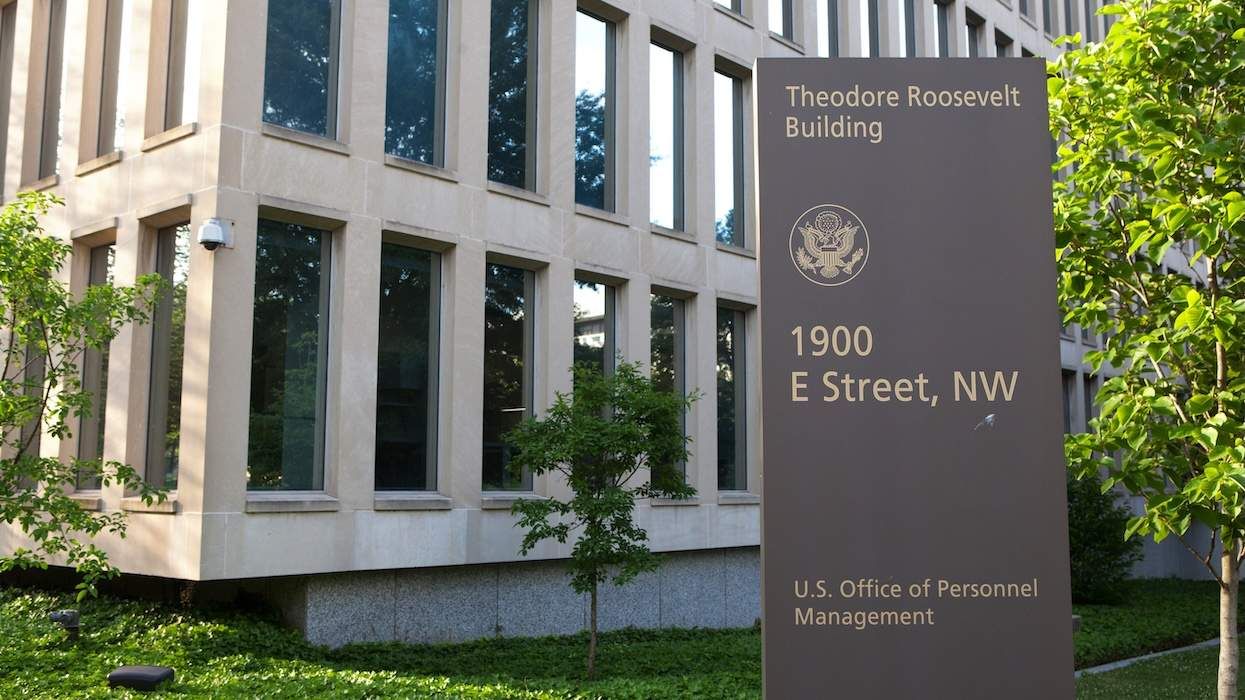

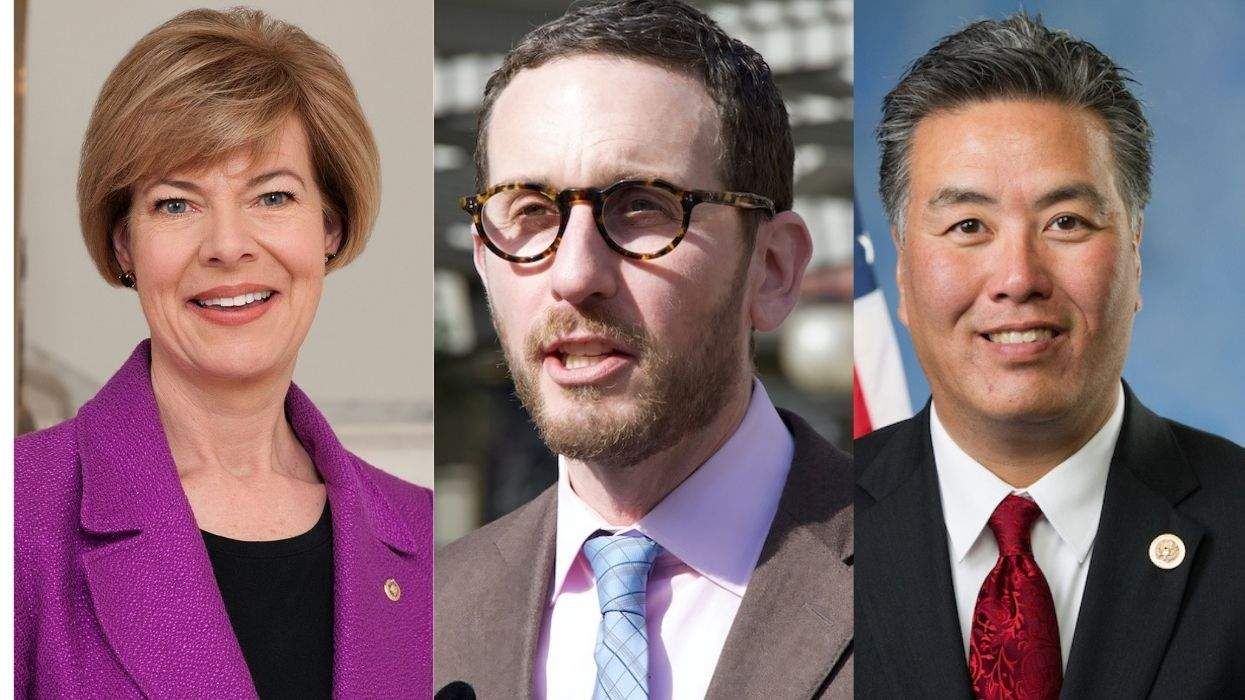


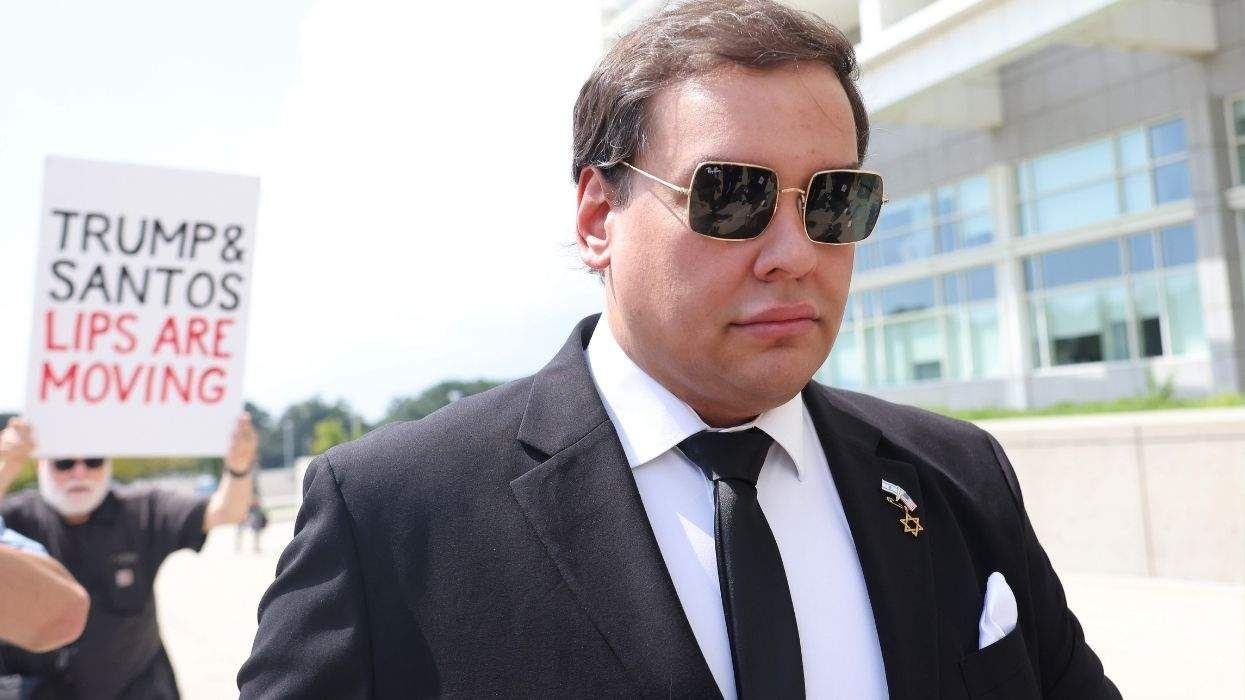
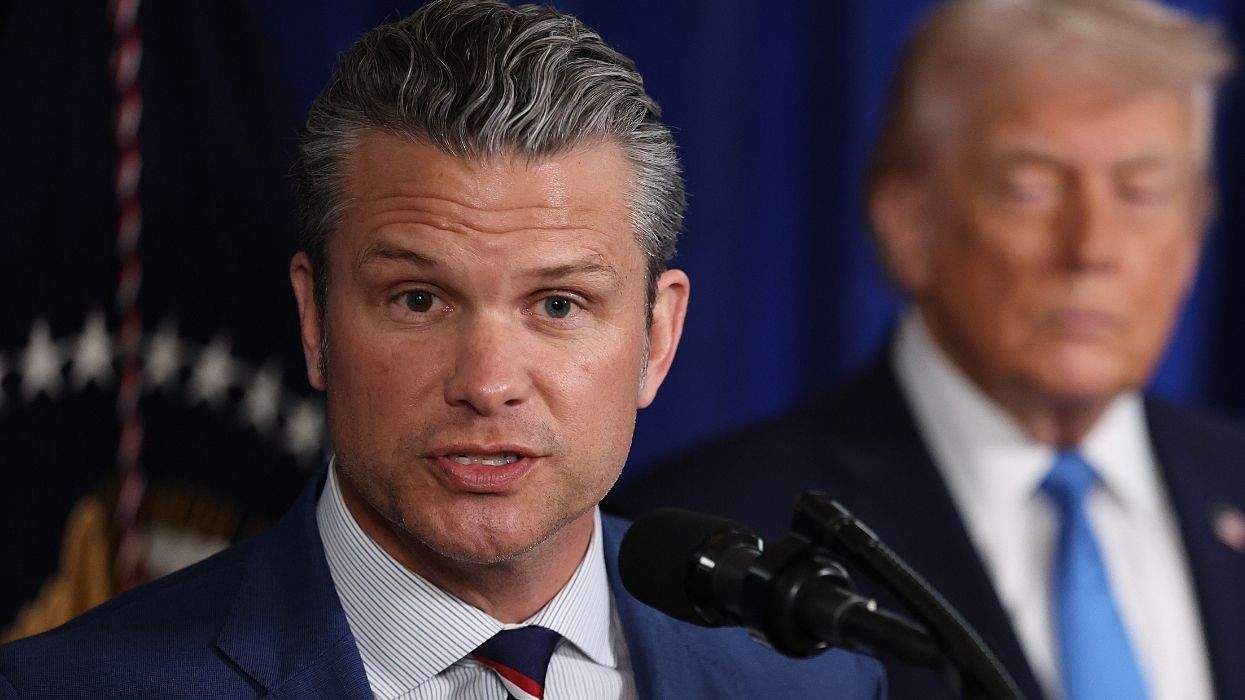


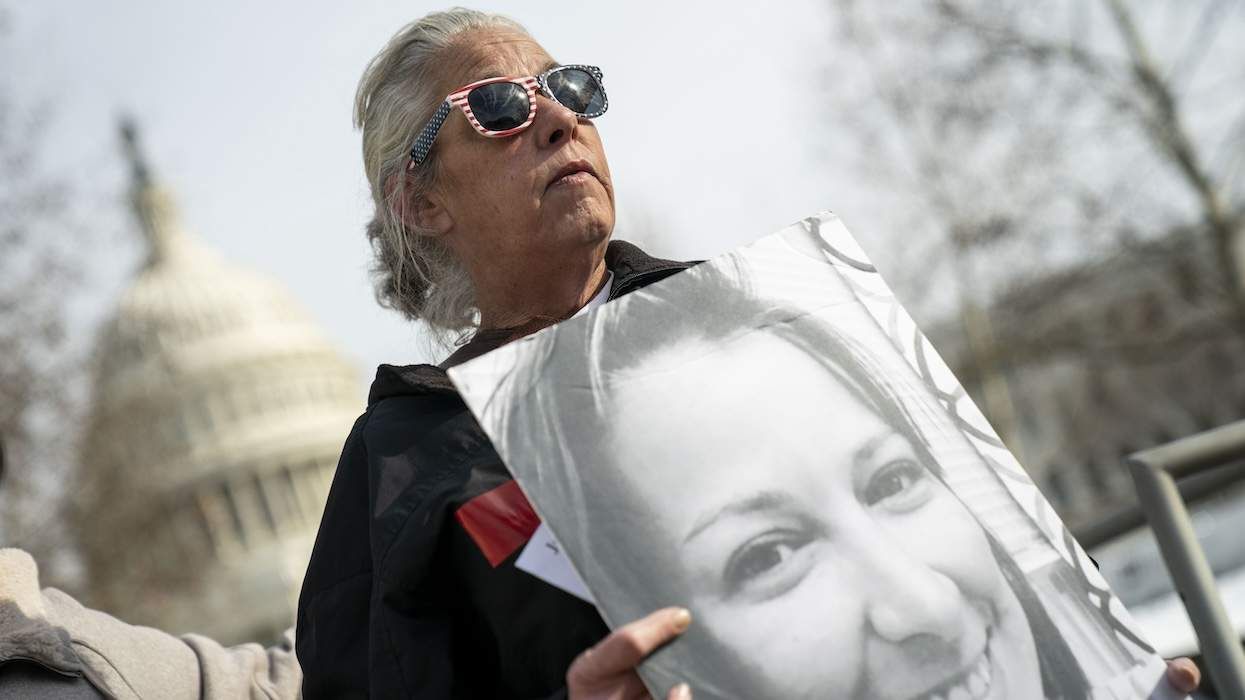
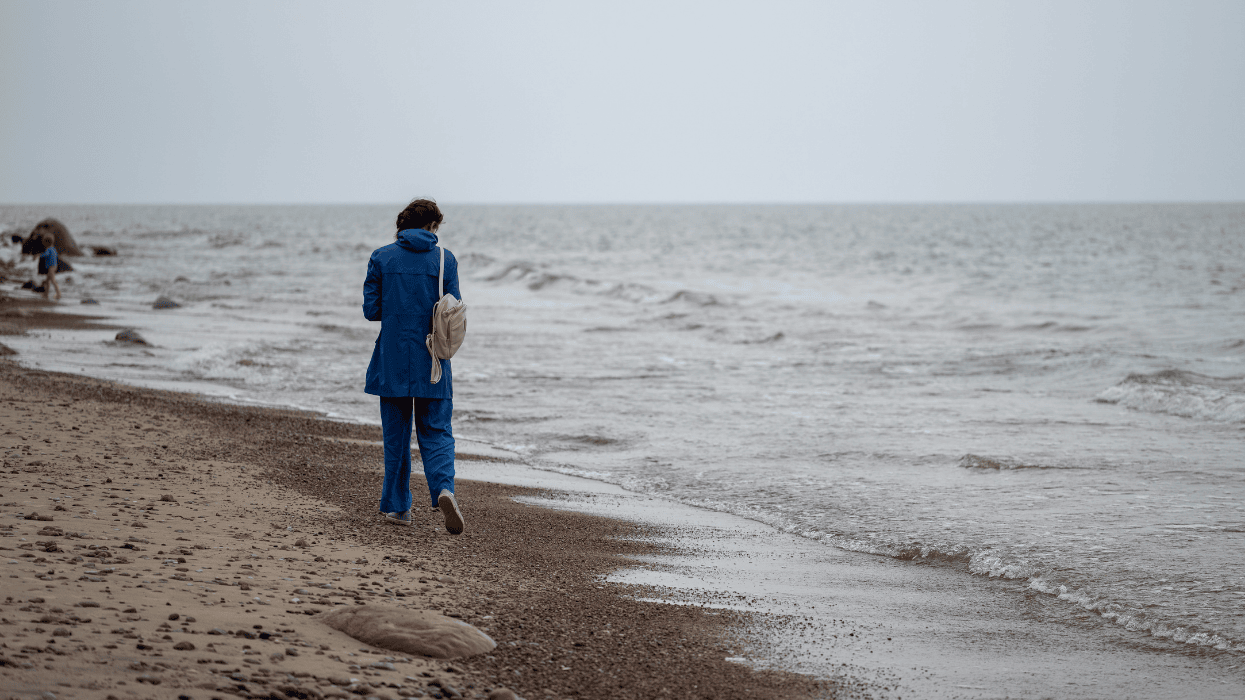










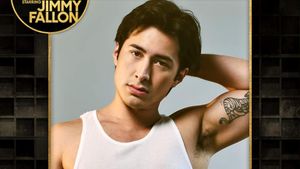



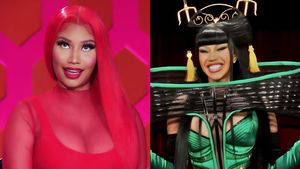















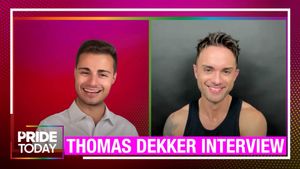










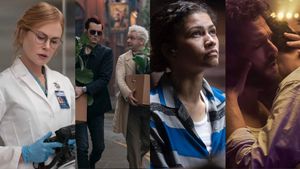







Charlie Kirk DID say stoning gay people was the 'perfect law' — and these other heinous quotes